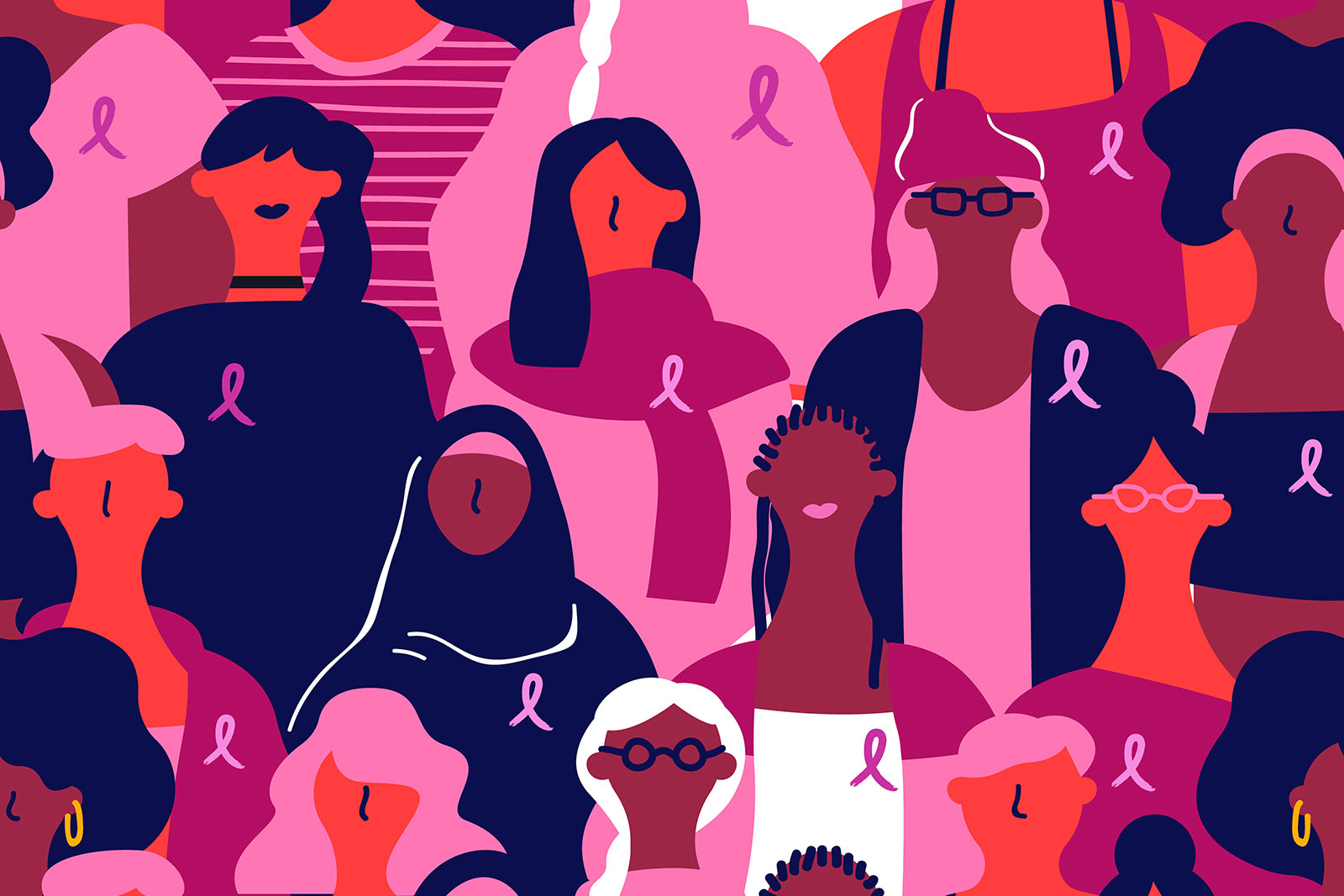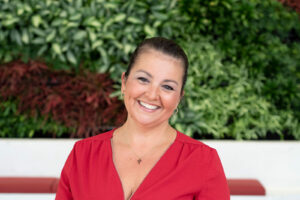Connecting with others who have gone through similar things as us fosters community, forges bonds and provides emotional outlets. For many cancer warriors and thrivers, their doctors are well-versed in treating the disease but have not experienced cancer firsthand. This can cause a disconnect when it comes to the mental, financial or physical aspects of a cancer patient’s recovery journey.
“I need to connect with my doctor,” explains Grace Luque, diagnosed with thymic cancer at 33. “I also appreciate a good bedside manner in addition to expertise. But if you are an ‘expert’ and I cannot connect with you, I just may search elsewhere. See me as a person; I am more [than] just my diagnosis.”
Many warriors seek a balance of expertise and empathy in the doctor-patient relationship. Encouraging room for a patient to talk to their doctor about cancer as well as mental health can eliminate problems that may arise during and after treatment.
“I have felt completely alone since treatment which left so many of my systems in near failure,” says Sharon Bertolli. Bertolli was diagnosed with late-stage triple negative breast cancer and visited the oncologist alone due to the COVID-19 pandemic. “I mostly need an endocrinologist but sometimes I don’t even know which doctor I should see or ask. There is no cohesive program for recovery, which is long and painful physically, emotionally and spiritually.”
Luckily, many patients do have doctors that recognize the strength in treating all facets of treatment and recovery, ensuring that cancer supporters and close family members are also feeling heard.
Kimberly Cooper, who had a mass discovered in her right lower lung last April, says, “I’m lucky to have a fantastic doctor. He understands my sarcasm and fears and listens to my questions.”
Thriver Cathy Redfern is recovering from Stage IV B uterine serous cancer and feels similarly about her doctor.
“I feel very fortunate to have a doctor who has a close family member who went through cancer treatment and beyond. He is willing to address the question ‘What would you do if it was your sister or mother?’ He has shown great empathy for my husband and his concerns. He treats the person as well as the disease,” Redfern remarks.
Still, some cancer warriors feel that there is a disconnect when it comes to the ways in which cancer can impact a patient’s financial situation. Acute lymphoblastic leukemia thriver Diana Mock experienced this.
Treatments for the mind, body and soul should be included for anyone on the cancer care continuum.
“Things are way more expensive than you realize,” Mock wants to tell doctors. “I had a doctor ask me, ‘What is it, like $13 for a blood test?’ Nope, try more than $330 without insurance. And insurance only covers a specific amount.”
Even in recovery, the effects from cancer don’t end when treatment is completed.
While Emma Stewart is in remission, her life and body after treatment are not fully recovered yet. “The amount of pain you feel, the constant fatigue—I have so many health problems that I can’t get out of bed,” Stewart says. “My body has been destroyed by radiation but there is no help with recovery.”
Even prior to her remission from colon cancer, Stewart points out that doctors might not understand how exhausting it is for cancer warriors to have so many blood tests and medical exams while also going through the more “normal” day-to-day challenges life can bring.
“I spent thousands [on medical tests] and I was getting tired,” explains Stewart. “I had felt off for about five years. I was prescribed antidepressants. But I got worse, so I [visited] doctors in another state and a spiritual healer and a therapist. I had [also] gone through a divorce during this time and I had a very demanding career.”
Erika Lojko is celebrating seven years as a breast cancer thriver this summer and believes that mental health should be included in cancer treatment. “Treatments for the mind, body and soul should be included for anyone on the cancer care continuum.”
There are so many aspects of the cancer journey that doctors may not understand. However, with open discourse and the ability for warriors and thrivers to speak their minds, the potential gaps in understanding between doctors and patients can close.
“Life after cancer is like walking through a forest trying to find your way to the sun,” Bertolli adds. “There are no clear paths, you double back a lot, but you can see that the sun is still there. If you keep walking, you might reach the clearing and breathe deeply and feel the sun on your face again, or you might die trying. You keep trying because your will to live is stronger than cancer’s hold on you.”
If you want to participate in cW conversations and have the chance for your answer to be featured in future issues, follow us on Instagram at @cancerwellmag.







